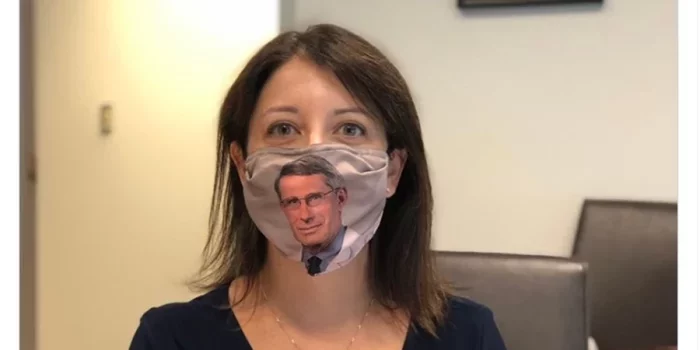(By Jon Miltimore, RealClear Wire) President Joe Biden recently tapped Mandy Cohen to lead the Centers for Disease Control and Prevention, replacing Rochelle Walensky , whose resignation will go into effect at the end of the month.
Like most people, until this week, I had never heard of Cohen, the former health secretary of the North Carolina Department of Health and Human Services.
There is no denying her credentials. She holds degrees in medicine and public health from Yale and Harvard and served as chief of staff in the Centers for Medicare & Medicaid Services during the Obama administration. In 2019, she was named by Modern Healthcare as one of the top 25 women leaders in healthcare.
Unfortunately, Cohen also represents the worst of the COVID-19 autocracy , which saw public health officials trample civil liberties and inflict catastrophic damage on the population.
Cohen banned gatherings of more than 10 people after the pandemic broke out. She also closed not just schools, but day care centers, “nonessential” retail stores, and bars and restaurants. (Naturally, liquor stores were deemed “essential.”)
To be fair, public health leaders faced difficult decisions in 2020 and beyond, and Cohen is hardly the only one who aggressively pursued government mandates that proved harmful. While it’s true North Carolina’s pandemic performance was poor — the Tar Heel State ranked among the worst states in social well-being and education during the pandemic — even critics can identify with Cohen when she says choices were difficult.
“At every turn trying to make really, really hard decisions that changed the way people lived their lives. It was really, really challenging,” Cohen told WCNC Charlotte in December 2021 after she announced she was stepping down. “There was no decision that we didn’t agonize over and deliberate over.”
Those last words are important. They suggest Cohen was making decisions in a deliberative process, weighing the costs and benefits of these policy decisions. The problem is Cohen’s own statements show her claims about “agonizing over” every decision reached through a deliberative process aren’t true.
Recently surfaced video from a May 2022 talk at Duke University’s Fuqua School of Business shows Cohen talking about how she reached public health decisions while chatting on the phone with the secretary of health and human services in Massachusetts.
“She was like, ‘Are you going to let them have professional football?’ And I was like, ‘No.’ And she’s like, ‘OK. Neither are we,’” Cohen told the audience , sparking laughter. “Or I’d be like, ‘So, when are you going to think about lightening up on masks?’ They were like, ‘Next Monday.’ I’m like, ‘OK. Next Monday, right.’”
New CDC Director Mandy Cohen recalls how she and her colleagues came up with COVID mandates during her time as NC Health Director.
“She was like, are you gonna let them have professional football? And I was like, no. And she’s like, OK neither are we.”pic.twitter.com/0pZl3dL01D
— Michael P Senger (@michaelpsenger) June 2, 2023
In contrast to “agonizing” over decisions, Cohen admitted to making public health policy in a manner that is objectively arbitrary and flippant. And she laughed about it.
It should go without saying that there’s nothing humorous about shutting down businesses or forcing people to comply with arbitrary orders. These nonpharmaceutical interventions proved highly ineffective, and they were accompanied with severe unintended consequences ranging from increased poverty and domestic violence to mental health deterioration, lost learning, and surging substance abuse that resulted in record overdoses .
The truth is, when we were told to “follow the science” ad nauseam, we were really being told to follow orders. Using “The Science” to ram through policies is a tried and true tactic of politicians and bureaucrats, one the economist Ludwig von Mises discussed more than 75 years ago.
“The planners pretend that their plans are scientific and that there cannot be disagreement with regard to them among well-intentioned and decent people,” Mises wrote in Planned Chaos . “[But science] can never dictate what ought to be and what ends people should aim at. It is a fact that men disagree in their value judgments.”
But dictating what ought to be was precisely what public health officials did during the pandemic. What’s more, officials seemed to confuse the edicts of Dr. Anthony Fauci with actual science, including Fauci himself.
This is no doubt one reason the CDC suffered a historic collapse in trust during the pandemic. The public witnessed the naked pollution of science with politics.
Appointing a Fauci acolyte, who in one interview laughed about the arbitrary nature of her pandemic policy while lamenting the “agonizing” process of decision-making in another, is no way to regain public trust.

